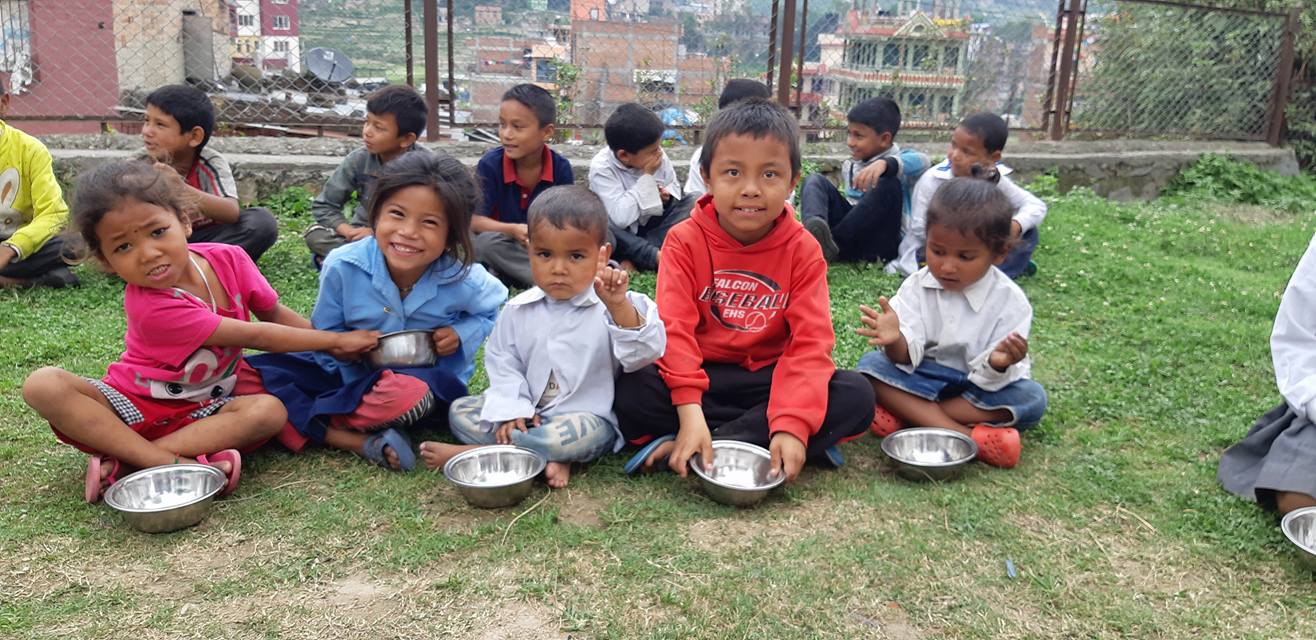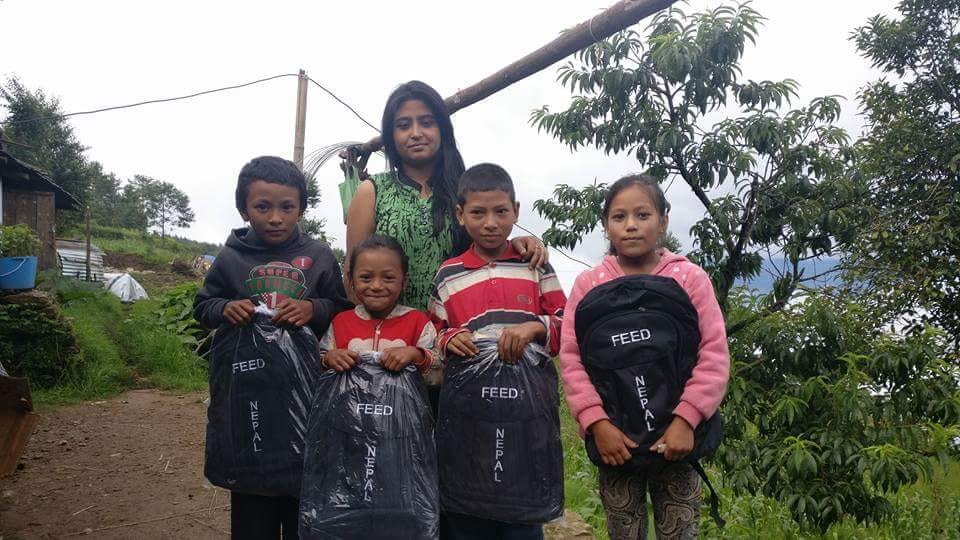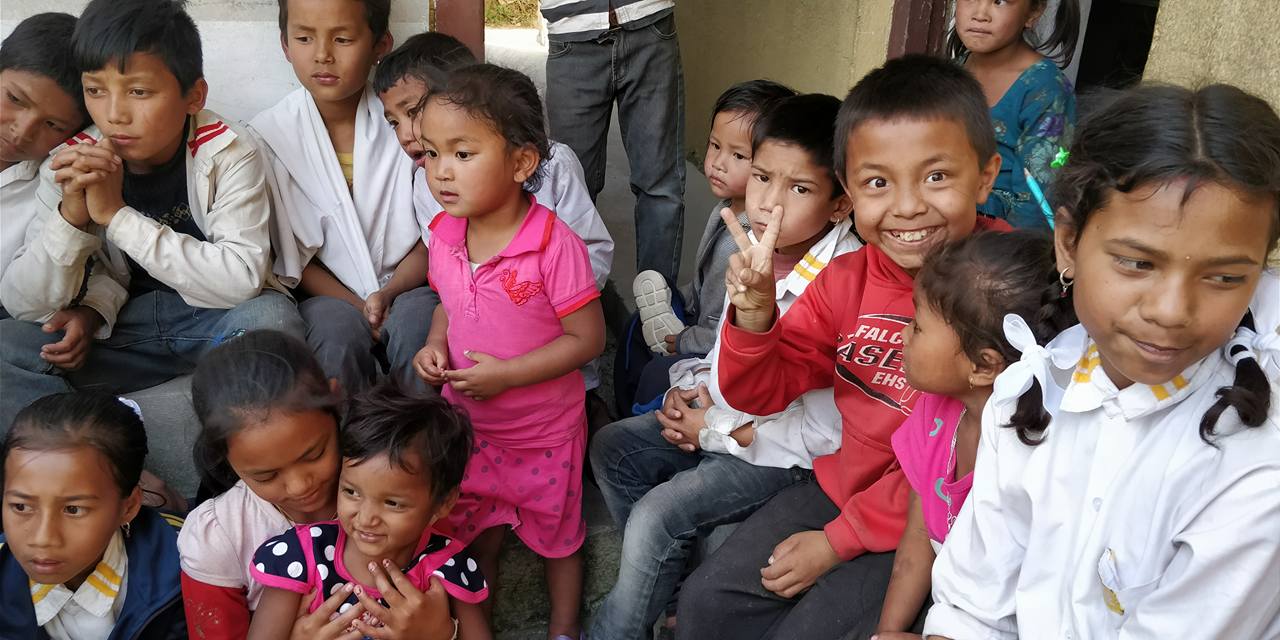The Joy of Helping Others Has A Different Level of Satisfaction - Ayusha Jonchhen, Social Worker, Social Changemakers Blog Issue No. 11
Would you resign your stable job just to serve to people? It is a tough decision, right? Going out of your comfort zone and doing something that your heart tells, most of the time it is very difficult. Hence, there are very few people who dare to do this, but Ayusha Jonchhen is one of them. She is the president of the Feed Nepal, an organization working for children’s education, and also a youth activist, who has been continuously working in this field since 2015 after leaving her teaching job at Paragon School. The Catalyst talked to her about her life journey as a youth leader and activist, her struggle and inspiration and about the NGO sector in Nepal.
Tell us something about Feed Nepal, how everything started and its mission.
I was working with the NGO named Manavya Aastha Nepal to help the earthquake victims in 2015. We worked as a rescue team. We built temporary houses, took care of children and managed food for them. After a few months, two people from India joined us. They were sir Mathew Anna and his friend. He was impressed with my work and dedication to work for the betterment of children during that period. One day we sat down for a conversation and came up with an idea to form a group to rescue children who had lost their parents and were traumatized by the earthquake. We named it Feed Nepal and since then I started working with it leaving Manavya Aastha Nepal. Later in 2017, we registered it as an organization for children, their education and their growth. Its prime motive is to help the parents and children who cannot afford good education, but really need and deserve it.
What was your motivation to get involved and how did you get into social work?
I belong to a middle class-struggling family. My parents didn’t get any support and help from their families, because it was a cross-caste marriage. I was admitted to a local boarding school that my father’s friend owned. When I was in grade 1, I went through a terrible humiliation at the classroom. My father’s friend pulled me by my hair and threw me out of the gate and yelled at me to never come back, because my father couldn’t pay my fees. That incident deeply affected me and I’m still not able to get over that humiliation. I was out of school at mid-session, so nobody would take me in at their school. I lost that whole year.
After that incident, my life completely changed. The next year, I was admitted to a government school nearby my house. The students there bullied me and teachers were not supportive, but I had few options to move around. I used to dream of someone who could pull me out of that situation and help me to pursue a proper study. I felt a kind of push or let’s say I discovered my inspiration and motive to work for children, so that they do not have to go through the same experience that I had when I was in school. It was my dream then. Today, I have been able make it a reality. Feed Nepal has helped me pave my way to become the person that I always wanted to become.

Feed Nepal started as a group of people collectively working for the victims of the earthquakes in 2015. How did it switch from that to an organization working for underprivileged children?
Our founder and I, we both are very fond of kids. We worked for 7 days to help disadvantaged kids who were affected by the earthquake in 2015. We both enjoyed the satisfaction we got in return working for children. We didn’t want it to end. Maybe that mutual feeling made it easier. It wasn’t that big of a deal for us to simply switch from a group to an organization, because we were very clear about what we would do after that switch. Another reason why we decided to switch was to be better prepare for the future. An NGO can go on for a long time, but it is quite hard for a group to commit as well as to sustain in the long term.
How has the organization been running? How do you collect the funds? How do you distribute the set?
Till date, we are mostly dependent on the funds from Mathew. Partially I use my savings and salary as well. Mathew sir covers all the monthly expenses like rent of our office, a monthly salary of our tutors, my salary, and the amount that we provide to each of our 60 students every month (Rs. 800 per person.) Apart from that, he gets different projects like distributing mosquito nets at hospitals, for us time to time and we implement them. One of my relatives has been helping us with Rs. 5000 per month that goes for the lunch for the children at Banepa. I also use most of my salary for the cause.
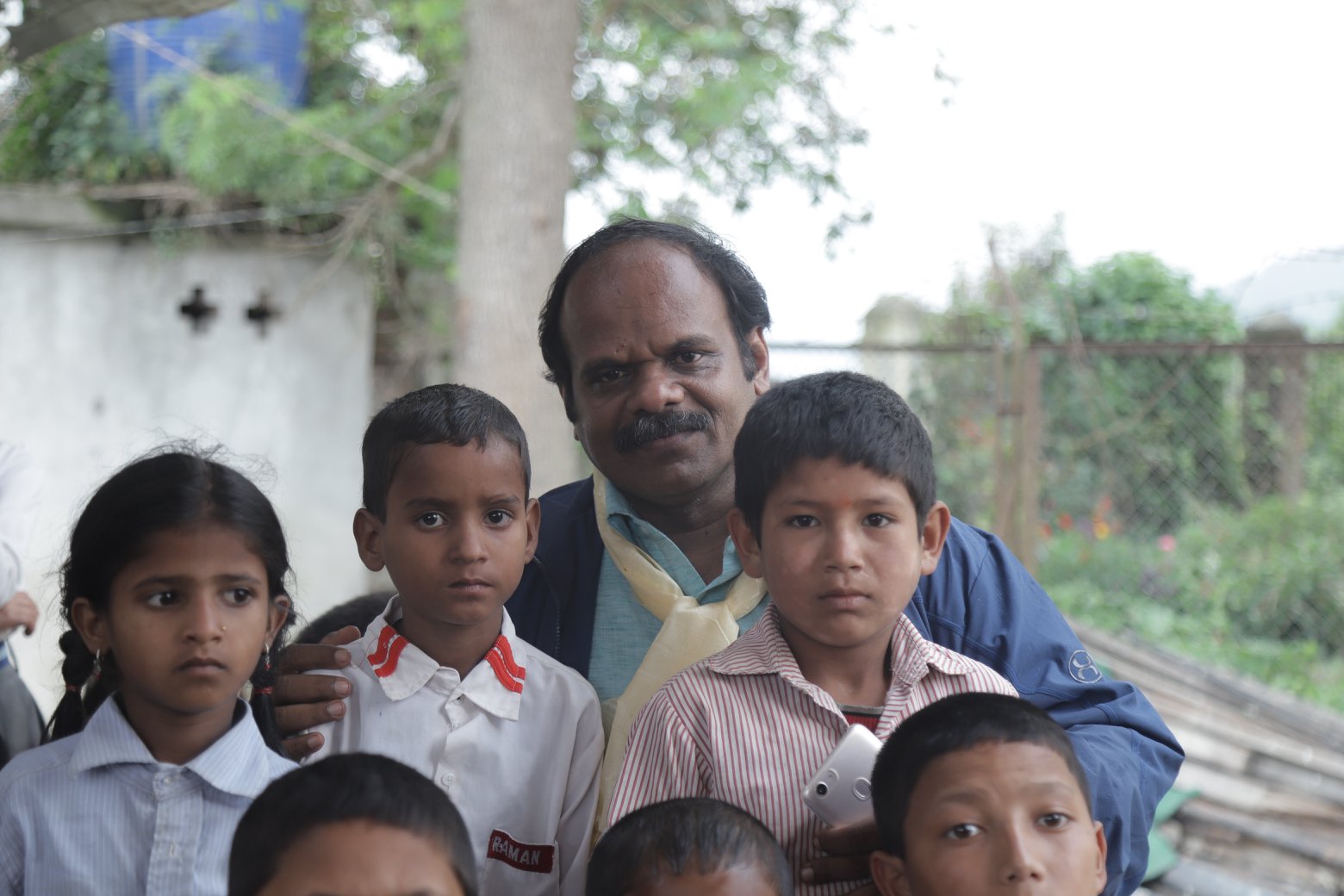
We don’t directly ask for funds from anybody. If people like our work and the impact of our work, then they can donate. And donation doesn’t necessarily need to be in the form of money. Our kids need materialistic goods more like books, notebooks, pencils, school bags and so on. Parents who unfortunately cannot afford their children’s education come to us asking for help. We also go house to house, door to door, school to school and check if they really need our help or not. That’s how we work.
There are a lot of organizations working for children. How do you differentiate your organization from others? Why should people trust your organization?
I agree, there are quite a large number of an organization working for children. I don’t know how they work, but after receiving a donation we keep a record of all the expenses and the bills and send every little detail to the person who donated. I feel that every person who donates should get this information, so he/she can see that his/her money is used for the right purposes. We often encourage our donors to visit our workplace, check whether or not we actually do what we claim, then only they can donate.
What do you think is the impact of Feed Nepal, your work, and effort? How many children have your organization helped so far?
You have traveled all the way from Lalitpur to Bhaktapur just to interview me about our work. I think this is the impact of our work. People who actually need help come to us with an expectation and we are happy not to disappoint them. Their expectation I think is our achievement and impact of our work. Till date, we have been able to help 300 kids with books, copies, pen-pencils, school bags, school shoes, school uniforms and school lunch at Banepa Primary School. We support monthly Rs. 800 to 60 children in Bhaktapur and have given employment to 3 tutors including myself. Apart from this, like I said earlier, we occasionally support blankets and mosquito nets to patients in different hospitals.
Is there any case or situation that is close to your heart or is really special to you? Can you share it with us?
Feed Pro is one of our recent projects where we provide school lunch to 90 students in Banepa Primary School. We have been doing this for last 6 months. The condition of the school’s children was miserable. Those students mostly belong to families who cannot afford everyday school lunch, other books, and stuff. The principal called us and we went there to see the children. After spending a day with them, we just couldn’t resist helping them. We sat down for a discussion and decided to provide lunch every day and material goods to the school kids.
Now, every time we go to see kids there, they welcome us with eyes full of joy, excitement, and expectations. That is so satisfactory. They are the kids to whom simple technology hasn’t been introduced, they don’t have a TV to watch or a smartphone to play with. They have nothing, but yet they are happy because they don’t have to worry about their school lunch, notebooks, pen-pencils or school bag anymore. And that never fails to amaze me.
A lot of people start up an organization with great motivation and excitement. After a couple of years, they disappear. What do you think is the reason for this?
When you start something, you start with great energy, interest, motivation, and excitement. But over time you lose interest and motivation, because things always don’t go as we expected. Sometimes our own ego about achievements obstructs further progress. We tend to think that the thing we are doing is a small thing, so we think of jumping over it quickly but that is not always so easy. It is also because social work is not a 9 to 5 duty. One should never say later when people reach out to you for help. And it requires great motivation to keep going for a long time.
How has your journey shaped your understanding of life?
This journey has taught me a lot of things that I surely wouldn’t learn in school or anywhere else. I got to see people’s real faces. I also met a lot of good people, helping hands and made good friends.
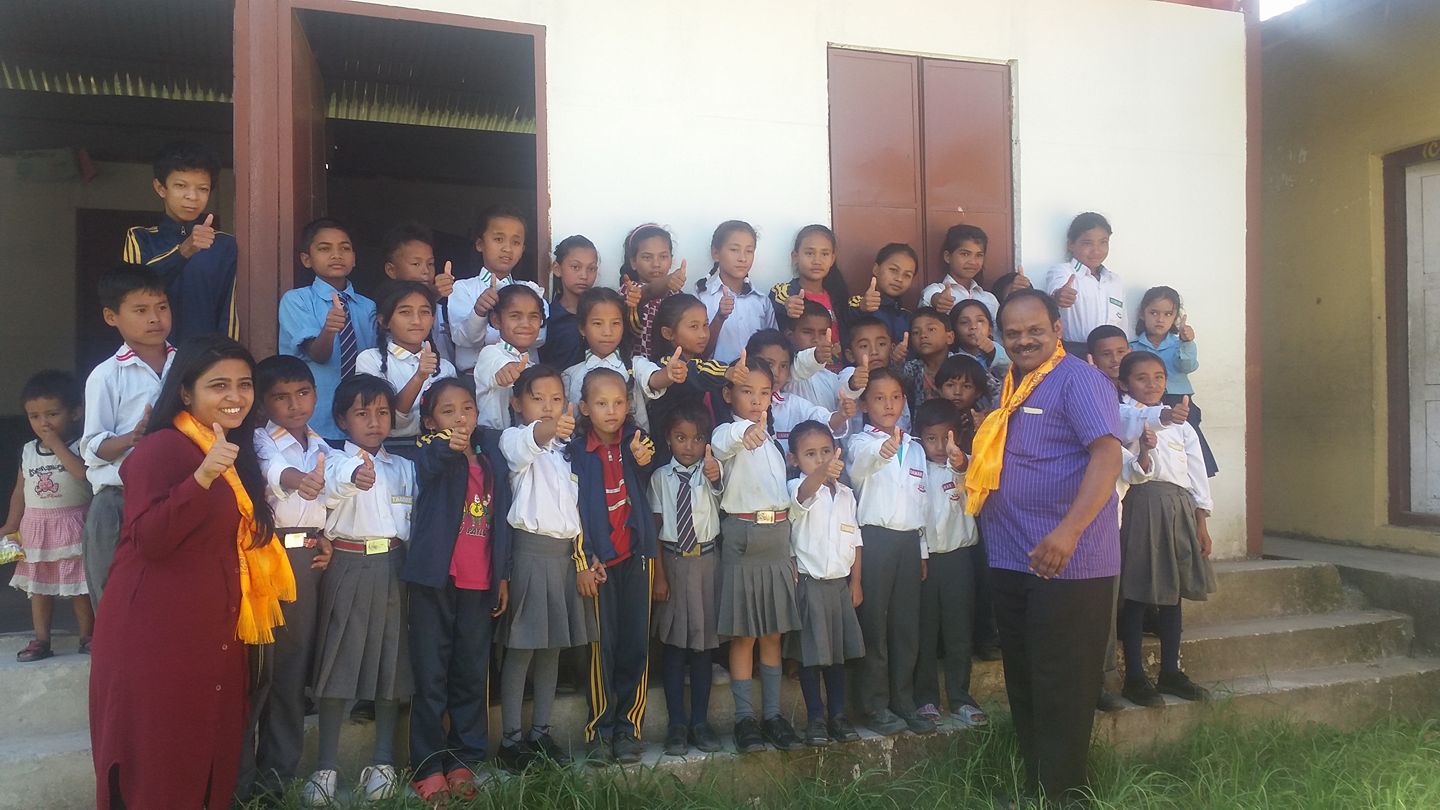
Now, I can filter and choose the people that I want to keep and stay away from. I know the people who stay at bad times and those who are just there for the good times. Before I used to spend my salary on something useless and on unwanted goodies. If I didn’t like food, I would just throw it away without feeling guilty about it. However, now I know the value of each penny and every single grain.
At last, what do you want to say to the people reading this interview?
Take care of people around you along with you. Don’t neglect the people who actually need you and your help. If you can bring a positive change in someone’s daily life just by your little effort, don’t hesitate. And we should share what we have with people around us, I think that’s why we call ourselves human.
Feed Nepal: https://www.facebook.com/FeedNepalNGO/
